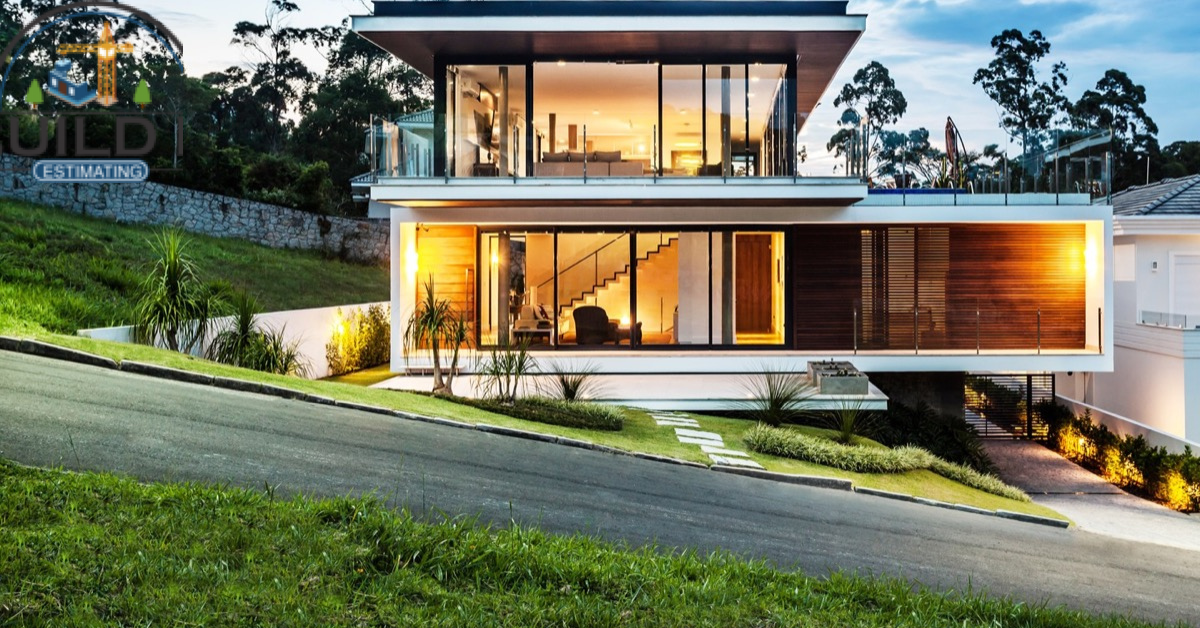Are you planning to build your dream home but unsure about the cost? Building a house involves various expenses, and it’s essential to have a clear understanding of the costs involved before embarking on this exciting journey. In this article, we will explore the topic of the cost to build a house and introduce you to a useful tool, the house building cost calculator, that can help you estimate the expenses involved in constructing your dream home.

Table of Contents
- Introduction
- Factors Affecting the Cost of Building a House
- Location and Land Cost
- Size and Layout
- Materials and Construction Quality
- Labor Costs
- Architectural Design
- Permits and Regulatory Costs
- Additional Features and Amenities
- Market Conditions
- Understanding the House Building Cost Calculator
- How to Use the House Building Cost Calculator
- Step 1: Input the Location Details
- Step 2: Specify the House Specifications
- Step 3: Review and Analyze the Results
- Benefits of Using a House Building Cost Calculator
- Tips to Reduce Construction Costs
- Conclusion
- FAQs
1. Introduction
Building a house is a significant investment, and determining the cost upfront can help you plan your budget effectively. The cost to build a house can vary based on several factors, such as location, size, materials, labor, and additional features. To simplify this process and provide accurate estimates, house building cost calculators have become valuable tools for homeowners and professionals alike.
2. Factors Affecting the Cost of Building a House
Several factors influence the cost of building a house. Understanding these factors will give you a clearer picture of the expenses involved. Let’s explore them in detail:
– Location and Land Cost
The location of your house plays a crucial role in determining the cost. Urban areas tend to have higher land prices compared to rural areas. Additionally, factors like proximity to amenities, accessibility, and demand in the area can also affect land costs.
– Size and Layout
The size and layout of your house are significant determinants of the construction cost. Larger houses generally require more materials and labor, leading to higher expenses. Moreover, complex layouts with intricate designs may require specialized expertise, which can add to the overall cost.
– Materials and Construction Quality
The choice of materials and construction quality directly impact the cost. High-quality materials often come at a higher price, but they can contribute to better durability and aesthetics. Additionally, energy-efficient features and eco-friendly materials may incur extra costs initially but can result in long-term savings.
– Labor Costs
Labor costs vary based on the location and the availability of skilled workers. Areas with a high demand for construction labor might have higher wages, affecting the overall construction cost. Moreover, specialized tasks, such as plumbing or electrical work, may require hiring professionals, adding to the expenses.
– Architectural Design
The complexity of the architectural design can significantly influence the cost. Unique designs, intricate detailing, and customized elements often require additional time and effort from architects and contractors, leading to higher expenses.
– Permits and Regulatory Costs
Obtaining permits and meeting regulatory requirements are essential aspects of building a house. Permit fees, inspections, and compliance with building codes and regulations can contribute to the overall cost. These expenses can vary depending on the location and the specific requirements in your area.
– Additional Features and Amenities
The inclusion of additional features and amenities, such as swimming pools, landscaping, smart home technology, or high-end finishes, can significantly impact the cost. These extras can enhance your living experience but should be carefully considered to align with your budget.
– Market Conditions
Market conditions, such as fluctuations in material prices and labor availability, can affect the overall cost. It’s important to stay informed about the current market trends and adjust your budget accordingly.
3. Understanding the House Building Cost Calculator
A house building cost calculator is a valuable tool that provides you with an estimate of the expenses involved in constructing a house. It takes into account various factors, such as location, size, materials, labor, and additional features, to provide an accurate cost projection. By using a house building cost calculator, you can gain insights into the potential expenses and make informed decisions.
4. How to Use the House Building Cost Calculator
Using a house building cost calculator is a straightforward process. Here are the steps involved:
Step 1: Input the Location Details
Enter the location details of where you plan to build your house. This includes the city, state, or specific area. The cost of construction can vary based on regional factors, so providing accurate location information is crucial.
Step 2: Specify the House Specifications
Next, specify the house specifications, such as the size, layout, number of rooms, and any additional features you desire. Be as detailed as possible to receive a more accurate estimate.
Step 3: Review and Analyze the Results
Once you have entered all the necessary information, the house building cost calculator will provide you with an estimated cost. Review the results carefully, considering the breakdown of expenses. This will help you identify areas where you can potentially adjust your plans to align with your budget.
5. Benefits of Using a House Building Cost Calculator
Utilizing a house building cost calculator offers several benefits:
- Accurate Cost Estimation: A house building cost calculator provides you with a realistic estimate of the expenses involved, helping you plan your budget effectively.
- Efficient Planning: By understanding the costs upfront, you can make informed decisions, prioritize features, and avoid unexpected financial challenges during the construction process.
- Cost Comparison: You can compare the cost of different design options or locations to determine the most suitable and cost-effective approach for your dream home.
- Flexibility: House building cost calculators allow you to modify various parameters and instantly see how they affect the overall cost. This flexibility helps you explore different scenarios and make adjustments accordingly.
6. Tips to Reduce Construction Costs
While building your dream home, you may want to consider the following tips to reduce construction costs:
- Optimize Design: Focus on an efficient and practical design that maximizes space utilization while minimizing unnecessary complexity.
- Value Engineering: Collaborate with architects and contractors to identify cost-saving alternatives without compromising on quality.
- Material Selection: Research and choose materials that offer a good balance between cost, durability, and aesthetics.
- Energy Efficiency: Incorporate energy-efficient features and technologies to reduce long-term operational costs.
- Construction Schedule: Plan your construction schedule strategically to minimize downtime and optimize resource allocation.
- Contractor Selection: Choose experienced and reputable contractors who can deliver quality work within your budget.
7. Conclusion
Building a house is an exciting endeavor, but understanding the cost involved is crucial for a successful project. By considering various factors like location, size, materials, labor, and additional features, you can estimate the expenses more accurately. Utilizing a house building cost calculator provides you with valuable insights and helps you make informed decisions to achieve your dream home within your budget.
FAQs
Q1: Can a house building cost calculator provide an exact cost?
A1: While a house building cost calculator can provide a close estimate, it’s essential to remember that construction costs can vary due to factors like market conditions, design complexity, and material prices. The calculator serves as a helpful guide, but consulting with professionals is recommended for precise cost assessments.
Q2: Are house building cost calculators free to use?
A2: Many house building cost calculators are available for free online. However, some advanced calculators may require a subscription or payment for access to additional features and more detailed estimates.
Q3: Can a house building cost calculator account for regional price variations?
A3: Yes, house building cost calculators often consider regional factors such as labor costs, material prices, and local building regulations. By inputting your location details, the calculator can provide a more accurate estimate based on regional price variations.
Q4: Can a house building cost calculator help me compare different design options?
A4: Absolutely! A house building cost calculator allows you to explore different design options by modifying parameters such as size, layout, and features. By comparing the cost estimates, you can make informed decisions about the most suitable design for your needs and budget.
Q5: How often should I update my cost estimate using a house building cost calculator?
A5: It’s advisable to update your cost estimate periodically, especially if your construction timeline is long or market conditions change. Regularly reviewing your estimate ensures that you stay informed about potential cost fluctuations and can adjust your budget accordingly.


